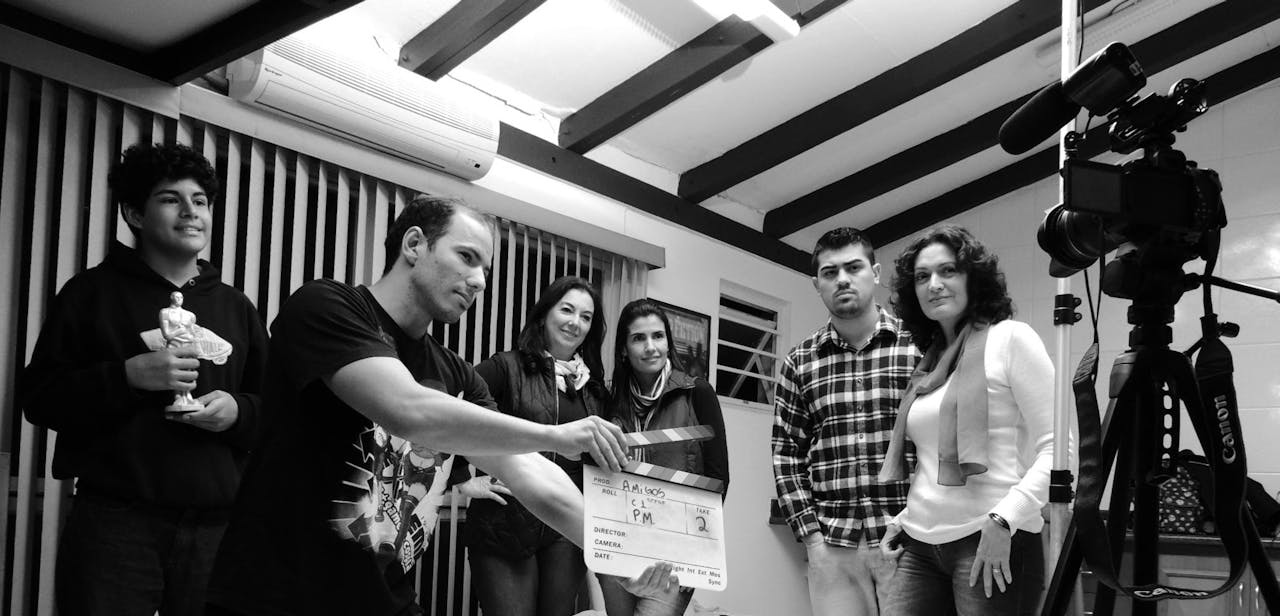In a world where our choices are as diverse as the characters on our screens, personality tests have emerged as the unexpected key to unlocking personalized entertainment experiences. Gone are the days of one-size-fits-all recommendations; today, platforms are harnessing the power of psychology to connect us with stories that resonate deeply with who we are. From binge-worthy series tailored to your introverted nature to films that ignite your adventurous spirit, these assessments delve into our innermost traits and preferences, influencing everything from casting decisions to marketing strategies. Join us as we explore how Personality tests are revolutionizing not just what we watch, but how we engage with narratives in ways that feel uniquely ours.
Transforming Casting and Talent Management
 Personality tests are increasingly being utilized to refine casting decisions and talent management strategies. Traditionally, casting decisions were often based on auditions and previous work, but personality assessments offer a deeper understanding of an actor’s traits, preferences, and potential fit for specific roles. For instance, a personality test might reveal an actor’s suitability for a particular character archetype based on their intrinsic traits, such as extroversion or empathy.
Personality tests are increasingly being utilized to refine casting decisions and talent management strategies. Traditionally, casting decisions were often based on auditions and previous work, but personality assessments offer a deeper understanding of an actor’s traits, preferences, and potential fit for specific roles. For instance, a personality test might reveal an actor’s suitability for a particular character archetype based on their intrinsic traits, such as extroversion or empathy.
This nuanced approach helps directors and producers select actors who not only match the physical and skill-based requirements but also embody the psychological and emotional dimensions of the characters. Moreover, personality assessments can aid in managing talent by providing insights into their strengths and areas for growth. This information allows managers to tailor career development strategies, improve on-set dynamics, and enhance overall performance. By aligning roles and responsibilities with individual personality traits, the industry can achieve more harmonious and productive collaborations.
Enhancing Content Creation and Development
The integration of personality tests extends beyond casting; it’s also reshaping content creation. Understanding the psychological profiles of target audiences allows creators to craft content that resonates more deeply with viewers. For example, creators can use personality insights to design characters and storylines that align with different personality types, ensuring that the content appeals to a broad spectrum of audience preferences. Personality tests can also guide the development of interactive and immersive experiences. In video games and virtual reality, for instance, game designers can use personality assessments to develop personalized experiences that adapt to the player’s traits and preferences. This tailored approach enhances user engagement and satisfaction by creating experiences that feel uniquely relevant to individual players.
Personalizing Marketing and Audience Engagement
Marketing strategies in the entertainment industry are becoming more sophisticated with the use of personality tests. By analyzing the personality traits of their audience, marketers can develop targeted campaigns that appeal to specific psychological profiles. For example, content promotions might be tailored to resonate with individuals who score high in traits such as openness or conscientiousness, leading to more effective and engaging marketing efforts. Additionally, personality tests can enhance audience engagement by facilitating the creation of personalized content recommendations. Streaming services, social media platforms, and other digital content providers can leverage personality data to suggest movies, shows, and other content that aligns with users’ psychological profiles. This personalized approach increases user satisfaction and retention by ensuring that content recommendations are relevant and appealing to individual tastes.
Improving Industry Insights and Trends
The use of personality tests is also providing valuable insights into broader industry trends. By analyzing aggregated personality data from both creators and audiences, industry professionals can identify emerging trends and shifts in preferences. This information helps stakeholders make informed decisions about content development, investment strategies, and market positioning. For example, if personality assessments reveal a growing interest in certain psychological traits or themes, entertainment companies can adapt their strategies to capitalize on these trends. This proactive approach enables the industry to stay ahead of consumer preferences and remain competitive in a rapidly evolving market.
Personality tests are making a profound impact on the entertainment industry by enhancing casting decisions, content creation, marketing strategies, and industry insights. As these assessments become increasingly sophisticated, their ability to provide deeper psychological insights will continue to shape the way entertainment is produced and consumed. By leveraging personality data, industry professionals can create more engaging, relevant, and personalized experiences that resonate with both talent and audiences.

